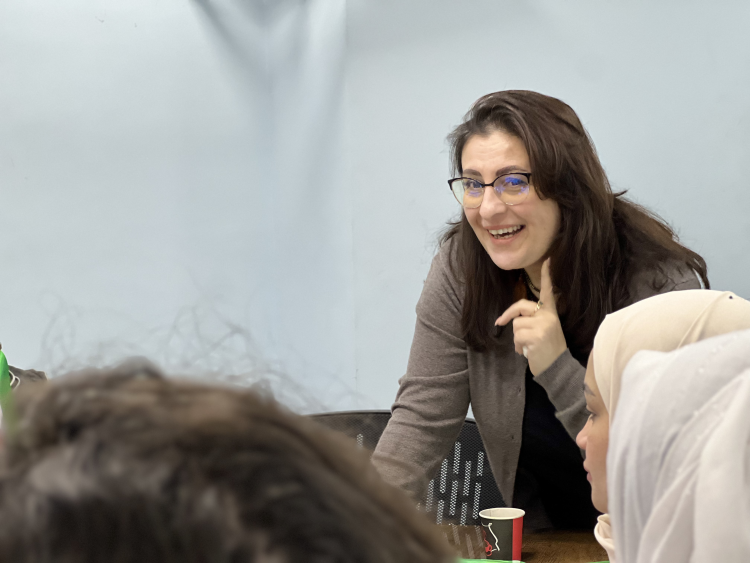This story is part of a series on ICFJ Jim Hoge Reporting Fellows. Read additional stories here and here.
When Bashar al-Assad’s government was overthrown at the end of 2024, Mais Katt, a Syrian journalist who has lived in exile for 14 years, immediately returned to her country. She was one of the first journalism trainers to enter Damascus after the fall of the regime. Her goal? Help prepare women journalists to take advantage of their newfound freedoms.
“Syrian society needs women journalists to participate in the transitional justice coverage and in building democracy,” says Katt, whose trip was supported by her ICFJ Jim Hoge Reporting Fellowship. “Without women, journalism won't be right."

While in Syria, Katt held various sessions, including an investigative journalism training for young women journalists, a conversation between international journalists and Syrian fixers, and a lecture to master’s students.
“Without the Jim Hoge Fellowship, I wouldn’t have been able to travel to Damascus so quickly,” Katt said. “Or to deliver the very first journalism training in the capital, a place I hadn’t seen in 14 years.”
At a time of political transition in Syria, Katt’s initiative provides opportunities to women journalists that would have been unimaginable not long ago. “One phrase I hear repeatedly is: ‘Now we finally have a safe space to ask questions, seek advice, and ask for support,’” she said.
Katt also took advantage of her trip to start a significant cross-border investigation through her media platform, Women Who Won the War, which she created following the publication of an eponymous story at the beginning of her fellowship.
Women Who Won the War is both an independent media platform and a community of women journalists in Syria. “I'm looking [at this outlet as] a platform to tell more deep, longform stories, and focus on women in conflict areas covering not only the war in the [literal] meaning of the word, but also the social war, the challenges that any woman can face in society,” Katt told IJNet in 2024.
Katt is now leading a series of online sessions for Syrian women journalists, focused on covering victims and survivors of years of conflict and human rights abuses. The first session was attended by 120 women journalists. She is also providing individual coaching, and creating a digital community for women journalists across Syria. “The voice of Syrian female journalists is very important now, more than any time before,” Katt said.
The Jim Hoge Reporting Fellowships honor former ICFJ Board chairman and venerated editor James F. Hoge Jr., who passed away in 2023. The initiative supports rising news leaders in the U.S. and abroad, helping the next generation of journalists safely and effectively report on pressing global issues.